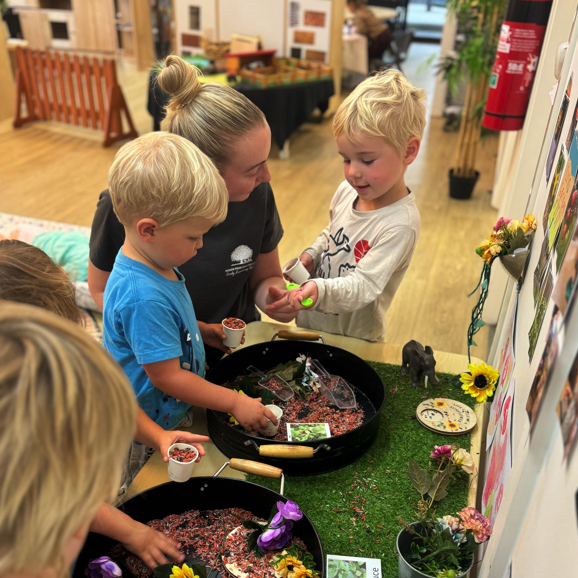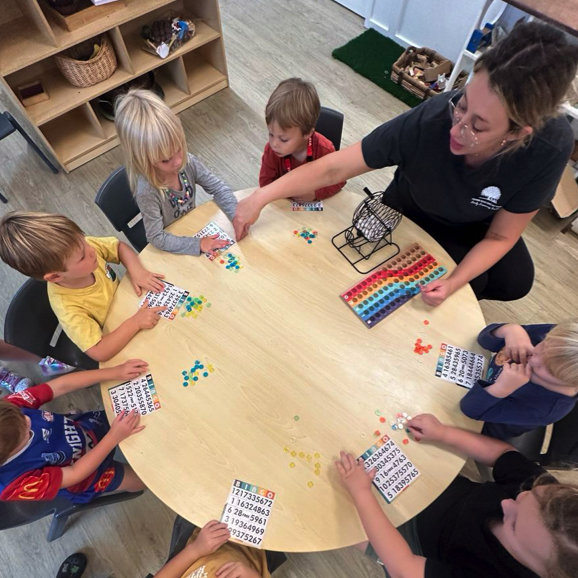Our Learning Environments

Early Learning Room
2-3years
Early Learning Room has trained and experienced educators who provide a nurturing environment to help your child to develop independence and positive self-image. Socialising with peers and participating in small group activities fosters healthy emotional development and will assist your child to gain self-confidence, form friendships and blossom into their own unique person.
The Early Learning Room’s program ensures that each individual’s interests and abilities are catered for, encouraging an enjoyment for learning early in life. Our creative materials and equipment facilitate play as a principle means of self-expression, problem solving and developing positive social skills. On a daily basis your child will have the opportunity to participate in language/literacy, music and movement, expressive arts, dramatic play and large motor and fine motor activities to ensure every area of their continued development can be met.
Children in the Early Learning Room will progress to the Transition to School Room at a time when they are developmentally ready, this decision will be made, and will consider input from families concerned and our educators. Children transitioning to the Transition to School Room will need to be toilet trained, and without bottles or dummies; subsequently being physically and emotionally ready for transition to this class

Preschool Room
4 - 5 years
Preschool room focuses a lot on the concept of ‘school readiness’, we believe the most important aspects for a child’s school readiness are their emotional and social maturity. Children with a strong sense of themselves, with good self-esteem and confidence, do best in the transition to school and throughout life (Benevolent Society 2015). Our program is inspired by three points of focus; life skills, groups times and positive interactions. Underpinning these areas is the motor that drives all development and learning… play!
Life Skills
In this we are referring to the critical self-help, emotional and social skills that helps us navigate the everyday routines of life. ‘The transition process is not just to school, but from home, childcare, preschool etc. It is a transition not just from early education and care environment, but often from small-scale to large scale interactions, from highly personalized to less personalized relationships. It is also from a learning environment with a limited range of ages to a learning environment with children of many ages.
Holistically, it is a transition to a different learning and care paradigm’ (Centre for Community Health, The Royal Children’s Hospital. 2008).
Group Times
At Pioneer Road Long Day Care, group time is a special time when educators and children come together as a community of learners for planned or spontaneous learning experiences. During this period children are encouraged to share thoughts and ideas as well as to listen and respond to peers and educators. Educators use these periods to build on children’s knowledge and current interests and extend emerging skills, concepts and emerging interests. During this time, we aim to encourage participation by through active participation. We hope to achieve this by planning the experiences according to their interests and strengths ensuring each individual child has an opportunity to participate in discussion and hands-on activities that might include yarning circles, music, art and craft, literacy and drama.
Teacher Child Interactions
We believe that positive interactions between Educators and children plays an important role in children’s lifelong learning. Positive Interactions between Staff and children have many benefits, such as opportunities for Educators to observe children’s learning and growth and for the creation of positive Adult-child relationships (Colbert, 2004)
Please see our Transition to School program for further information.

